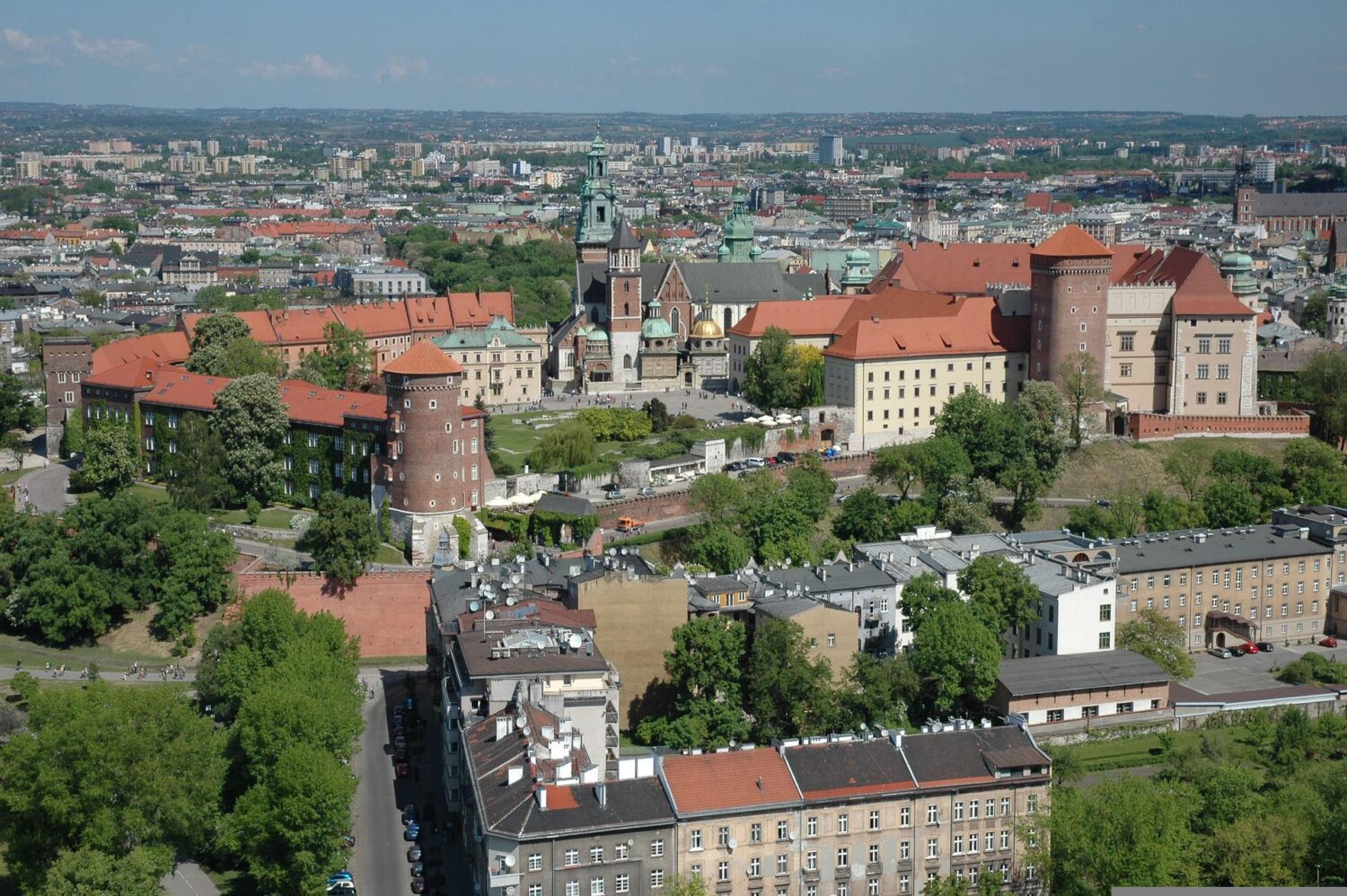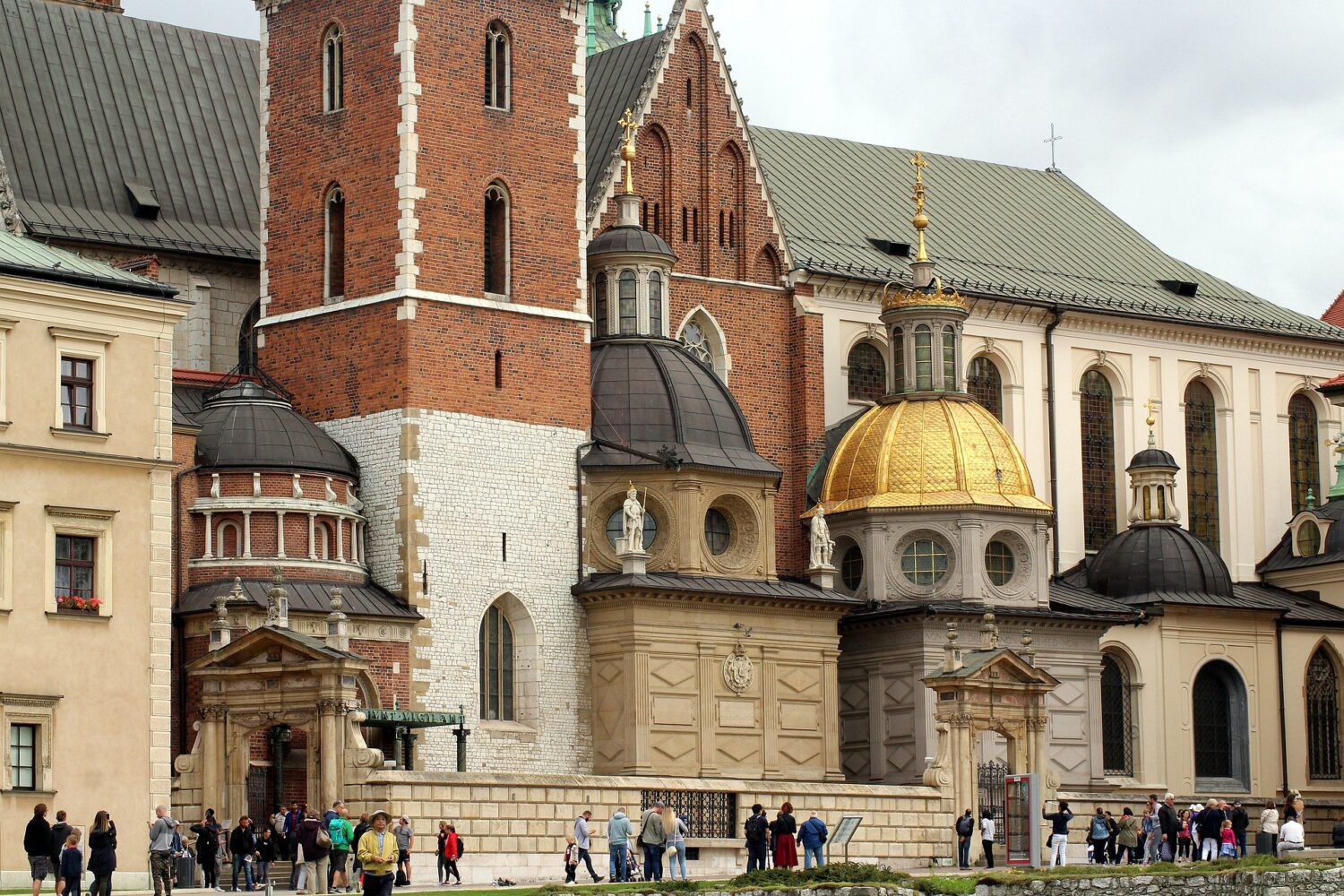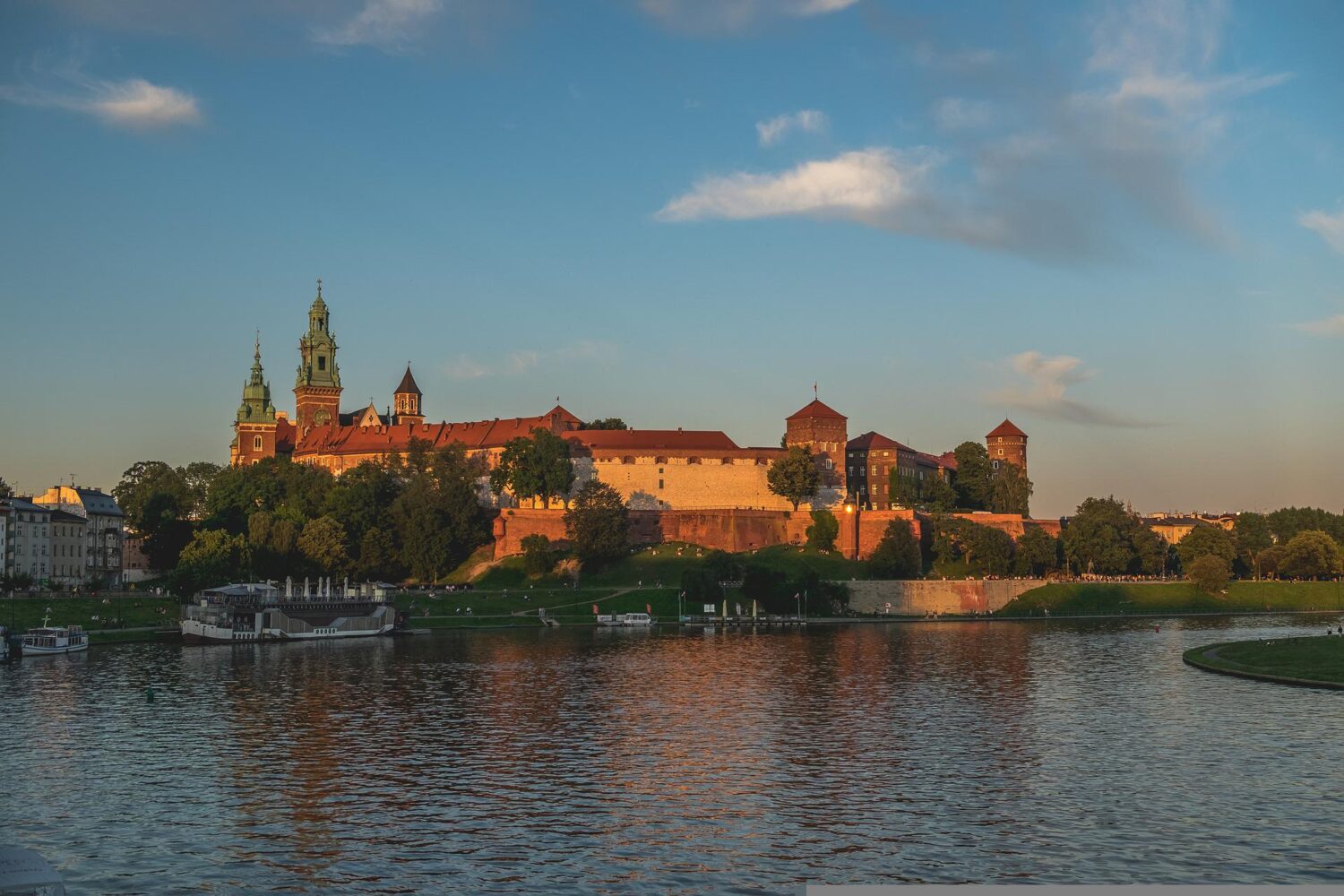Wawel Royal Castle
Historical & Cultural Sites – Wawel Royal Castle and Wawel Hill
Updated 11 January 2023.
Wawel Royal Castle is a historic castle located in Krakow, Poland. It is situated on Wawel Hill and overlooks the city. The castle has a long and complex history, with the original fortifications dating back to the late 9th century. The current architectural style of the castle is primarily Gothic and Renaissance, with some Baroque and Renaissance elements. The castle has been expanded and remodelled over the centuries, and it has served as a royal residence for Polish kings throughout history.
The Royal Castle and the limestone Wawel Hill are extremely important historical and cultural sites containing one of the most important collection of buildings in Poland.

Residence of Kings
Wawel was once the seat of Polish rulers, the residence of kings and the focal point of many Polish historical events. The hill is a symbol of the Polish nation and has witnessed some of the greatest moments in Polish history.

Castle complex
The castle complex includes several buildings, such as the Royal Castle, the Cathedral, the Wawel Dragon’s Den, and the Royal Residence. The Royal Castle contains several museums and art collections, including the Crown Treasury and Armoury, the State Rooms, and the Royal Private Apartment. The Cathedral is the coronation site of Polish kings and the burial place of many Polish monarchs, national heroes, and poets.
Located south of the old town and next to the Vistula River, Wawel Hill showcases an incredible assortment of architectural delights including Renaissance, Gothic and Romanesque designs. The Royal Castle and the Cathedral are must-see attractions and a walk around the castle courtyards and open spaces are highly recommended.
Art Museum
Today, the Royal Castle is home to a superb art museum, which is well-known throughout Europe and the World because of its collection of Italian Renaissance paintings, the Sigismund II Augustus tapestry collection, sculptures, ceramics, period furniture and textiles among others.

Sections
The museum consists of five individual and separate sections: Crown Treasury and Armoury, State Rooms, Royal Private Apartments, Lost Wawel and the Exhibition of Oriental Art.
Wawel Hill has a long history, which can be traced back to the year 1000 when the first cathedral on Wawel Hill was built. Since then, Wawel has experienced many different timelines ranging from its Golden era from the 14th to the 16th centuries to the start of its decline as a centre of importance in 1609; when the then King moved his court to Warsaw.
The Royal Castle was the cultural and political heart of Poland during the 16th century and today, it stands as a potent symbol and reminder of the Polish national identity. Visitors to Wawel Royal Castle today will see a 16th century Renaissance palace; however, before this, it was a formidable Gothic castle; which was burned down in 1499
Restoration
Over the years, the castle has been repeatedly sacked and vandalised. Extensive restoration work has been carried out since and many of the castle’s external structures and interior decorations have been recovered.
The castle and its grounds are open to the public and are a popular tourist destination in Krakow, and a lot of visitors come to see the impressive architecture of the buildings and to learn about the castle’s rich history.